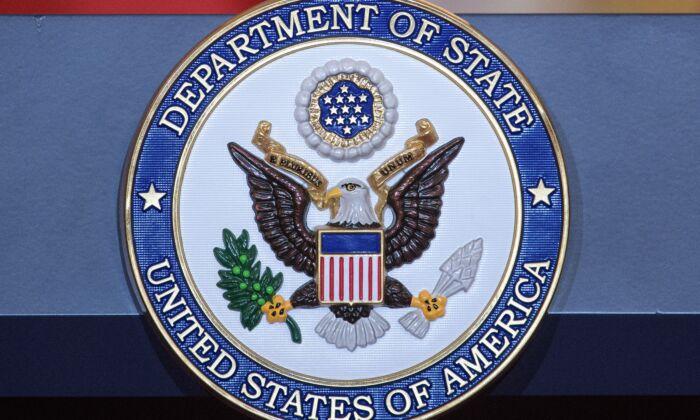The United States on Sept. 21 placed new sanctions on the Iranian defense ministry and others involved in Iran’s nuclear and weapons programs, saying that virtually all United Nations sanctions against the regime in Tehran prior to the 2015 Iran nuclear deal are now restored.
Secretary of State Mike Pompeo also announced sanctions against “the previous president of Venezuela, Nicolás Maduro” for cooperating with Iran to violate the arms embargo.
Major European allies, as well as U.S. adversaries such as Russia and China, disputed the legal effect of the sanctions.
“We don’t need a cheering section to validate our moral compass,” said U.S. Ambassador to the U.N. Kelly Craft. “We do not find comfort based solely on numbers, particularly when the majority has found themselves in an uncomfortable position of underwriting terrorism, chaos, and conflict. We refuse to be members of that club.”
Iran has continued providing to its allies, including terrorist organizations, weapons that are used to fuel conflicts in Syria, Lebanon, Iraq, and Yemen, officials said.
The sanctions under Trump’s order will target the Iranian Ministry of Defense, armed forces logistics, as well as Iran’s defense industries organization and its director, Pompeo said. Meanwhile, placing sanctions on Maduro should be understood as a warning worldwide, he added.
“No matter who you are, if you violate the U.N. arms embargo on Iran, you risk sanctions.”
“Our sanctions have saved countless Muslim, Jewish, and Christian lives by denying Tehran access to more than $70 billion,” Pompeo said, while allowing for “humanitarian trade and assistance.”
The “maximum pressure” will be applied on Iran “until the Iranian regime comes to the table and accepts a real deal for changing its behavior,” Pompeo said.
Iran’s Foreign Minister Mohammad Javad Zarif said in an interview on Sept. 21 that his country won’t renegotiate the provisions of the nuclear deal that would expire soon.
“Absolutely not. Absolutely not. Absolutely not. Absolutely not. Because those were parts, part of the deal. The United States accepted those,” Zarif said.

U.S. Treasury Secretary Steven Mnuchin announced on Sept. 21 the sanctioning of entities and officials related to Iran’s nuclear and ballistic missile programs. In addition, “any financial institutions that knowingly facilitate a significant transaction for these individuals or entities could be subject to U.S. sanctions,” he said at the press conference.
U.S. Defense Secretary Mark Esper said the United States is “prepared to respond to Iranian aggression.”
“Our commanders have the authorities and resources they need to protect their troops and to prepare for any contingencies, and we continue to stand shoulder to shoulder with our allies and partners to counter Iran’s destabilizing behavior,” he said.

Five Iranian scientists who played a critical role in the development of Iranian nuclear weapons also were sanctioned by the U.S. Commerce Department, Commerce Secretary Wilbur Ross said.
The Iran nuclear deal brokered under the Obama administration was “an enormous failure” because it created a pathway for Iran to quickly generate material needed for nuclear weapons, Pompeo said.
“When this deal was signed, Iran was at the breaking point,” said national security adviser Robert O'Brien, saying the deal “took the pressure off Iran” and gave it “$150 billion in sanctions relief.”
Iran also received $1.8 billion in a settlement that the United States was holding up, he noted. The regime in Tehran hasn’t used the money for the benefit of its people, but financed “terrorist proxy wars throughout the Middle East,” O’Brien said.
Other parties to the nuclear deal and most U.N. Security Council members have said they don’t believe the United States has the right to reimpose the U.N. sanctions and that the U.S. move has no legal effect.





